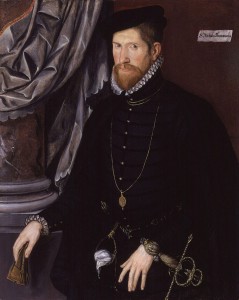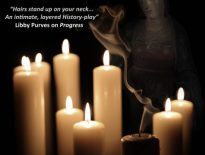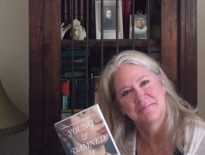 On this day in history, 17th April 1554, Sir Nicholas Throckmorton was tried for treason for his alleged involvement in Wyatt's Rebellion, the rebellion led against Mary I by Sir Thomas Wyatt the Younger in early 1554. The indictment against him accused him of being "a principal, deviser, procurer and contriver of the late Rebellion" and said that "Wyatt was but his minister", but he was acquitted. According to Stanford Lehmberg, his Oxford Dictionary of National Biography biographer, "Throckmorton gave a bravura display of eloquence and learning to run rings round his accusers" and "poured ridicule on the prosecutors' attempts to find him guilty by association, and repeatedly caught them out on points of law". The jury acquitted him but the jurors were arrested straight after the trial and Throckmorton remained in prison until January 1555.
On this day in history, 17th April 1554, Sir Nicholas Throckmorton was tried for treason for his alleged involvement in Wyatt's Rebellion, the rebellion led against Mary I by Sir Thomas Wyatt the Younger in early 1554. The indictment against him accused him of being "a principal, deviser, procurer and contriver of the late Rebellion" and said that "Wyatt was but his minister", but he was acquitted. According to Stanford Lehmberg, his Oxford Dictionary of National Biography biographer, "Throckmorton gave a bravura display of eloquence and learning to run rings round his accusers" and "poured ridicule on the prosecutors' attempts to find him guilty by association, and repeatedly caught them out on points of law". The jury acquitted him but the jurors were arrested straight after the trial and Throckmorton remained in prison until January 1555.
The chronicle of Queen Jane, and of two years of Queen Mary, and especially of the rebellion of Sir Thomas Wyat gives the following account of what happened on that day:
"The xvij th of Aprell, 1554, were ledd to the yelde hall, to be arrayned, sir Nicholas Throgmorton and sir James Croftes, master Robert Winter and Cuthbert Vaughan being also ledd thether to wytnes against theym; where that day was no more arrayned but sir Nicholas Throgmorton, who tarrying from vij th of the clock untyll allmost v. at night, was by verdyt quitt, wherat mayney people rejoyced. Sir Nicholas Throgmorton's talke at the barre was this: he pleaded not gilty, and that he was concenting to nothing, &c.
The juries names is (left blank), which quit him; wherefore they were commanded to be redy before the counsell at an hower's warnynge, on the losse of v li. a pece. On saincte Markes day, being the XXV th of Aprell, they were before the counsayll in the starre chamber, and thence, aboute ij. of the clocke, Whetston and Lucar were sent to the Tower, and the rest to the Fleete, prysoners."
Volume 4 of Raphael Holinshed's Chronicles of England, Scotland and Ireland gives a very detailed account of Throckmorton's trial (p. 31-55) and this can be read at https://archive.org/stream/chroniclesofengl04holiuoft#page/30/mode/2up. The jurors are named as Lucar, Yoong, Martin, Beswike, Barscarfeld, Kightleie, Low, Whetston, Painter (Pointer), Banks, Cathrop and Cater. Whetston acted as the jury's foreman and when the jury was asked whether they found Throckmorton guilty of the charges laid against him, Whetston said "No". When the jury were asked if Whetston's verdict was all of their verdicts, they replied "Yea". Whetston stated that "we have throughlie considered the euidence laid against the prisoner, and his answers to all these matters, and accordinglie we haue found him not giltie agreeable to all our consciences." The attorney then stated that every member of the jury would "bee bound in recognisance of fiue hundred pounds a peece, to answer to such matters as they shall be charged with in the queenes behalfe, whensoeuer they shall be charged or called."
Later in the Chronicle, we are told that in November 1554, "Maister Whetston, and maister Lucar, and maister Kightlie, were adjudged to paie two thousand pounds a peece, and the rest a thousand marks a peece, to be paid within one fortnight after." Masters Low, Painter, Beswike and Cater were exempt because they had "confessed a fault, and thereupon had submitted themselves." (p. 64) Then, we are told that on Wednesday 12th December, "five of the eight men which laie in the Fleet, that had passed upon Sir Nicholas Throckmortons triall, were discharged and set at libertie upon their fines paid, which was two hundred and twentie pounds a peece. The other three put up a supplication, therein declaring their goods did not amount to the summe of that which they were appointed to paie: and so upon that declaration, paieng three score pounds a peece, they were delivered out of prison on saint Thomas daie before Christmas, being the one and twentith of December."(p. 74)
Volume 1 of A Complete Collection of State Trials... also gives full details of his trial - see the notes and sources section below for a link to read it online.
Throckmorton was released in January 1555 on a bond of £2,000. He fled to France in June 1556, fearing that he would be implicated in Henry Dudley's plot, but he was pardoned and allowed to return to England in May 1557. He went on to serve Mary I fighting in France in 1558 and then served her half-sister, Queen Elizabeth I, as an ambassador. He died on 12th February 1571.
Notes and Sources
- ed. Nichols, John Gough (1850) The chronicle of Queen Jane, and of two years of Queen Mary, and especially of the rebellion of Sir Thomas Wyat, J.B. Nichols, London, p. 75. Read at https://archive.org/stream/chronicleofqueen00nichuoft#page/74/mode/2up
- Holinshed, Raphael (1807-8 edition) Chronicles of England, Scotland and Ireland, J. Johnson, London, p. 31-55, 64, 74. Read at https://archive.org/details/chroniclesofengl04holiuoft
- ed. Howell, T.B. (1816) A Complete Collection of State Trials and Proceedings for High Treason and Other Crimes and Misdemeanors..., Longman, Hurst, Rees , Orme and Brown, p. 869. Read at https://archive.org/stream/acompletecollec24howegoog#page/n488/mode/2up.
- Lehmberg, S. (2004-09-23). Throckmorton, Sir Nicholas (1515/16–1571), diplomat and member of parliament. Oxford Dictionary of National Biography.



Leave a Reply